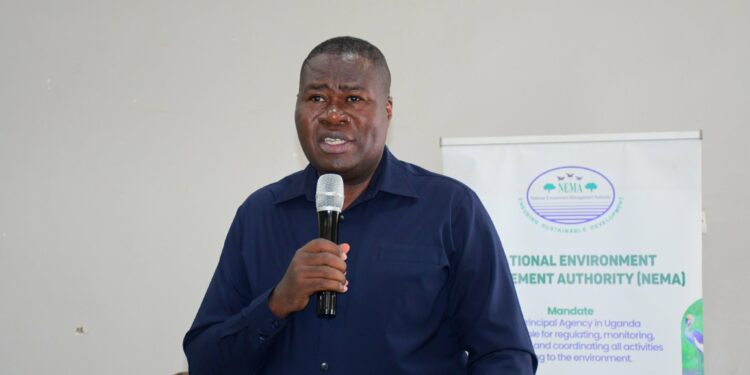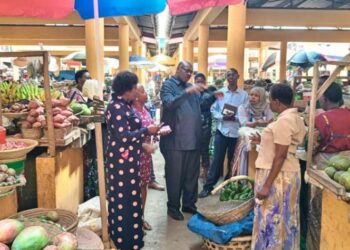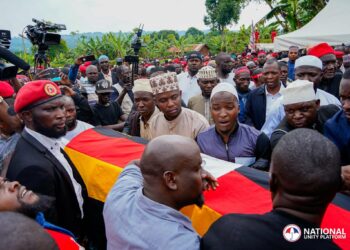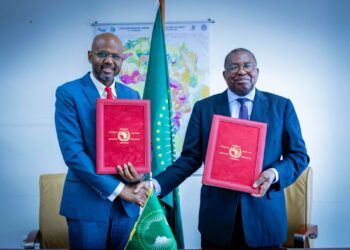Local leaders in Tororo District are calling for the immediate dissolution of the district’s roads committee, accusing it of mismanaging road funds that could have been better used to improve the district’s dilapidated road network.
The district, which has struggled with the upkeep of its roads, has seen more than 200 kilometers of its 600-kilometer road network become impassable due to poor maintenance and substandard workmanship.
The call for dissolution follows mounting criticism of the committee, which is chaired by members of parliament (MPs) and is responsible for allocating the district’s road maintenance funds.
For the past several financial years, Tororo District, like many other local governments in Uganda, has received up to 1 billion shillings annually for road maintenance. Despite these funds, the district has seen limited improvements in its roads, with the situation becoming worse year after year.
The district roads committee, which is tasked with managing and allocating these funds, claims to have maintained about 80% of the district’s road network. However, many residents and local leaders argue that these efforts have been ineffective, with much of the work done being of poor quality, leaving the roads in a worse condition than before.
Eddy Obela, a councilor in Tororo District, criticized the committee for failing to properly invest in the roads, particularly in vital drainage systems. He explained that the lack of proper drainage systems on many of the district’s roads has led to water running directly over the roads, further deteriorating their state.
“One, you have failed to put money, two, you’re failed to work on the drainage to show water where to pass, so water is just running on the road, so it makes it also hard, because of how it has been trying to be worked on or maintained,” Obela said.
John Okea, the Tororo District Chairperson, has taken a stronger stance, blaming members of parliament for diverting road funds to their own constituencies. He argues that MPs are more focused on distributing the limited funds among their electoral areas, leaving insufficient resources for comprehensive road maintenance.
“Every member of parliament wants to cut that money to go to his constituents. So once they have done that, capping money little it is, the best you can do is to put fuel in the grader and just pass the grader forthose roads all to be worked off,” Okea said, expressing frustration over the inefficient use of resources.
Okea has called for the dissolution of the district roads committee, urging that the district’s council be given full authority to allocate road funds directly. He believes this would allow for better management and accountability in the use of taxpayers’ money.
However, some members of parliament, including Hon. Jacob Oboth Oboth, the MP for West Budama and the Minister for Defense and Veteran Affairs, have rejected the accusations. Oboth defended the work of the district roads committee, stressing that they have played a crucial role in lobbying for additional funds for road maintenance.
“I think I would challenge anybody me. I have access to central government. Most of the roads in my constituency are done through Ministry of Works, and we expect this other last quarter Ministry of Works has taken over. They are going to do about stretch of seven kilometers new, brand new,” Oboth explained.
Oboth expressed optimism that the district’s road network would improve in the near future, noting that the district roads committee has already requested the central government to take over certain key roads to ease the financial burden on the district. “There are some roads that the district roads committee asked the central government to take over to reduce on the pressure,” he said.
Despite Oboth’s reassurances, many local residents remain skeptical. The state of the roads continues to pose a significant challenge for both transport and daily life in Tororo District, with large stretches of the road network left inaccessible due to poor maintenance.
With over 200 kilometers of roads impassable out of the total 600 kilometers in Tororo, the community remains frustrated by the lack of concrete progress and the alleged misallocation of resources.
As the debate continues, local leaders are calling for urgent reforms to ensure that the district’s road funds are better utilized, with a focus on long-term infrastructure development rather than short-term political gains.
The controversy surrounding the roads committee highlights a larger issue in Uganda’s local governance, where mismanagement of funds and political interests often undermine development efforts.
Do you have a story in your community or an opinion to share with us: Email us at editorial@watchdoguganda.com












